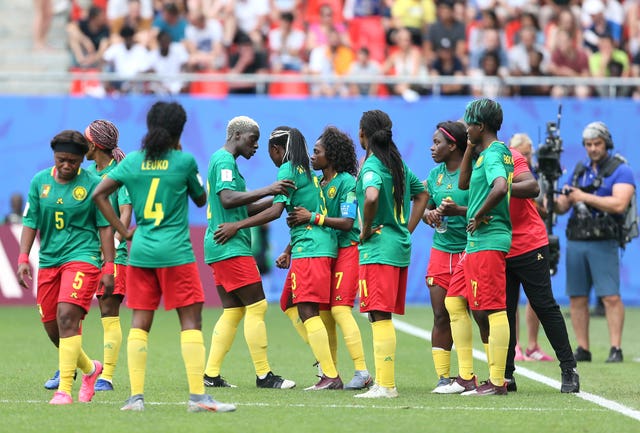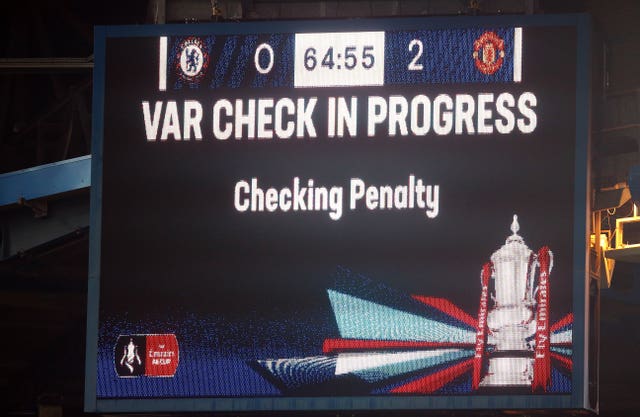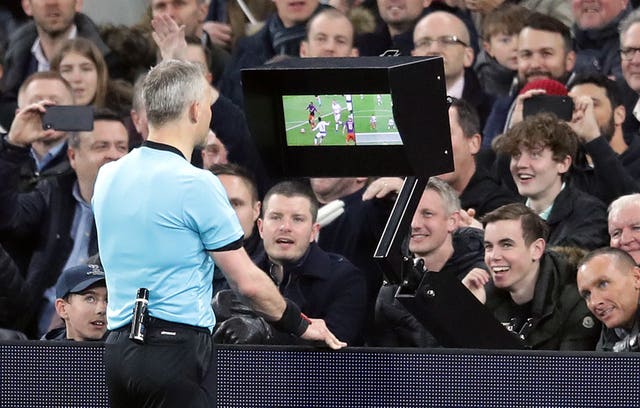Former referee Neil Swarbrick insists fans do not need to worry about lengthy delays to Premier League games when the video assistant referee is introduced for the forthcoming season.
The recent Women’s World Cup was marred by a plethora of controversial uses of VAR and the time taken to make decisions.
Both the Premier League and Professional Game Match Officials Limited (PGMOL) will be under the spotlight when the new top-flight campaign begins on August 9, with the video technology being used in the division for the first time.
VAR is used to help officials with four key decisions – goals, penalties, red cards and cases of mistaken identity.
But Swarbrick has told fans they should not be concerned when it comes to the impact of its introduction on the tempo of Premier League games as the video assistant referees working out of Stockley Park in west London will place a high threshold on when to intervene.
“It is where you set the bar,” he told PA when asked how Premier League officials will ensure minimal time delays.
“Our invention line is very high, over 69 live games we have done so far and we are reviewing a decision one in every five games.
“Against other competitions that is quite good, at the (2018) World Cup there was a review every 3.2 games and the Women’s World Cup was a review every 1.9 games.

“We are setting a very high bar as to when we intervene so it is less likely there will be stoppages of any significant length.”
Swarbrick – who has worked on training current officials to use VAR effectively – said he could empathise with the officials at the Women’s World Cup in France earlier this summer as they had a lack of training with the system before it was rolled out.
“I felt for the competition to be honest, they were in a difficult position where they decided to use the VAR and the majority of referees had no experience whatsoever,” he said.
“We have gained advantage of two-and-a-half years of training our officials and utilising it in the FA Cup and Carabao Cup over the last two seasons as well.

“So they were thrown in at the deep end, being asked to use it for the first time. I think they had a seminar before Christmas and then a few games just before the World Cup to go and utilise it.
“We know from experience that the more you work it, the more times you sit as a VAR and referee with VAR the more beneficial it is. It has been tough for them and I can really empathise with the criticism they received.”
Swarbrick believes the level of trust established between the referees set to use VAR for the first time will also be of assistance.
Whereas other competitions have often used match officials and VAR teams from different countries and with little or no prior experience of working together, the Premier League referees are all familiar with one another.
“We have got a close-knit group of referees who do trust each other, work with each other and meet up fortnightly to review decisions,” he added.
“Through all the experience they have had, they are comfortable with operating as a referee with VAR, that VAR being one of their colleagues, and if they have made a clear and obvious error they are comfortable with them lads advising them that the decision is incorrect.
“It does save time not going over to the referee review area (RRA), we know on average it takes 60 seconds for the referee to go over to the RRA, review the incident and then another 30 seconds to restart play so it automatically saves 90 seconds.”

The Premier League is the last major European league to introduce VAR after suggestions it would be used last season were dispelled.
But Swarbrick feels delaying the decision, for whatever reason, proved beneficial in fully preparing officials for the changes VAR brings.
“Ultimately the decision (to wait for the 2019/20 season) has been made by the Premier League, clubs and stakeholders.
“Personally I feel that is for the benefit of the game, it has given us another year to certainly practice with the referees, gain experience from other countries and competitions that use VAR and I think it has put us in a really good standing point of where we are going to intervene in certain situations.”
/https%3A%2F%2Fsportsmole-media-prod.s3.gra.io.cloud.ovh.net%2F19%2F23%2Fnedeng_5.jpg)
/https%3A%2F%2Fsportsmole-media-prod.s3.gra.io.cloud.ovh.net%2Fuploads%2F2025%2F10%2Fsm-azzuu-amorim-69038a7dcb8fb900696297.jpg)
/https%3A%2F%2Fsportsmole-media-prod.s3.gra.io.cloud.ovh.net%2Fuploads%2F2025%2F11%2Fns-photo-badge-email-sportmole-15-69189fec06180431361228.jpg)
/https%3A%2F%2Fsportsmole-media-prod.s3.gra.io.cloud.ovh.net%2Fuploads%2F2025%2F11%2Fhaaland-690797d1179e8642646402.jpg)
/https%3A%2F%2Fsportsmole-media-prod.s3.gra.io.cloud.ovh.net%2F25%2F20%2Fcarlos-corberan.jpg)